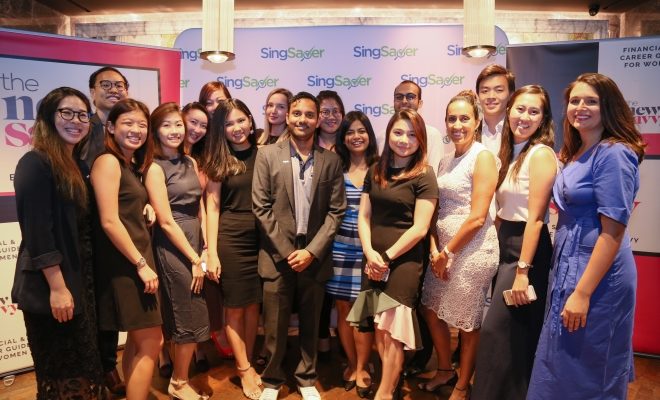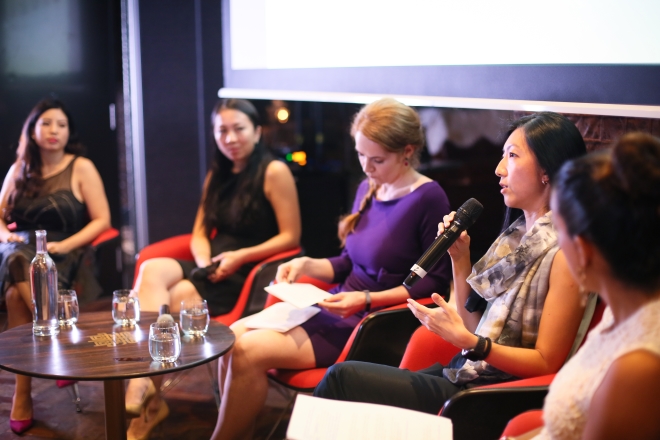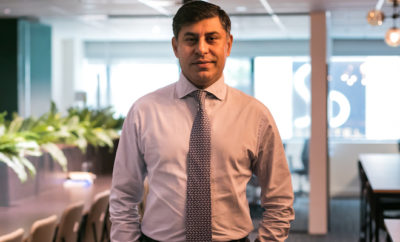
Insights + interviews
Singapore women prefer cashback as their main reward: SingSaver survey
SingSaver, a financial comparison platform based in Singapore, partnered with market research firm Kadence in December 2018 to survey nearly 700 women aged 21-55 about their personal finance decisions.
The survey has identified cashback as the top reward women look for when choosing a credit card. Cashback is an incentive given to credit card holders where they they receive a cash refund after making their purchase. This is usually used to offset their credit card bill.
Cashback was the top reward among women (82%) while air miles were a distant second (28%). Singapore-based women on average owned between 2-3 credit cards (versus two for men). The most common credit card spending categories after dining (23%) were groceries (21%) and shopping (19%).
We spoke with Rohith Murthy, Founder and Country Manager at SingSaver to get a better perspective of the survey results and the outcome:
Active Age (AA): What does the survey results tell us about the women and their financial lifestyle in Singapore?
Rohith Murthy (RH): In general, we see women in Singapore are now much more knowledgeable when it comes to spending, saving, or paying down a bill. Our data clearly shows women’s changing attitudes to personal finance, as well as increased financial inclusion and independence.
Women are getting better at matching their financial product choices to their lifestyles and are feeling more confident about who they are financially and what kind of financial products they seek to align with that. It serves as a strong message to banks and financial services providers that they must stay ahead of the curve in serving this smarter, more knowledgeable female demographic.
In terms of rewards for using credit cards, women in Singapore, especially Millennials, continue to favour the flexibility of cashback. It’s clear that women value cashback more than air miles, as the appeal of cashback cards is that the cash is available right away rather than having to accumulate in the form of points or miles.
On our comparison platform, 50% of visitors are now women – a telling sign that they are actively comparing financial products to choose the one that best meets their needs. This also dispels the myth that men are more interested in finances than women. Finally, on the lifestyle and spending side, women in Singapore are primarily using their credit cards for three things: dining, groceries, and shopping.
The main financial habits for women that we have identified are:
- Taking control of their finances
- Tending to compare banks when getting a new financial product
- Tending to spend money only when they find offers or a good deal
- Being very thoughtful in purchases
We have seen that these are the most relevant financial goals women want to achieve:
- Create multiple income streams
- Have enough insurance to cover contingencies
- Get out of debt completely
- Have a well-stocked emergency fund
- Plan for early retirement
AA: How can women make use of this information (from the survey) to better make use of the various financial tools available to them?
RH: The survey highlights the importance for women of using financial products, such as credit cards, to achieve their own lifestyle goals – whether that’s in areas like dining, groceries, and shopping, or other areas like travel and fitness. Depending on what they priorities, different financial products may be more or less suitable to them.
We want women to be smart about shopping around for credit cards, loans, or insurance. Don’t just go with the first product you see, or the one that everybody else is using. It may not be right for your individual needs, which is why the SingSaver comparison platform can really help you align with the right product. It’s a free, data-secure service and we aggregate all the products on one page for you to easily compare and apply, so you save both time and money.
We’re glad to see women taking more control of their financial lives. Nearly two thirds (70%) of women said they are sole decision maker when it comes to choosing a financial product. Our message to them is that they don’t need to be intimidated by finance as something masculine or put it aside because it’s not a priority versus family responsibilities – it is!
We encourage women to seek out financial advice and literature, if needs be starting with simple material and educating themselves slowly, until they are ready to handle more complex concepts and products. The main thing is that they come to trust themselves and start feeling comfortable with their own financial decisions and knowledge.
Beyond comparison platforms, tools are available in the market such as budgeting tools (mobile apps), as well as platforms aimed at women in Singapore, such as The New Savvy, to help them increase their financial literacy. Another example is Card Up, a tool to pay rent or school fees, for example, with your credit card. She Loves Tech is also a useful resource worth checking out for women in Singapore.
AA: What would be a game changer in shifting people – and specifically women – towards financial security in Singapore?
RH: From our perspective, it’s important to work with thought leaders and women of influence in Singapore. It’s through these champions and role models, whether they be business leaders or key opinion leaders, that the average woman can be inspired to take greater control of their personal finances.
It’s for these reasons that we’re organised an event about financial inclusion for women, where we brought together female role models from across Singapore to celebrate their stories as well as discuss the challenges and opportunities around financial security for women.

The event was called “What’s Next For Women and Finance” and was held in partnership with The New Savvy last Thursday (28 March) to mark our fourth year anniversary. The audience heard from women of diverse backgrounds on topics including financial inclusion for women, gender equality, access to money and capital, and financial literacy.
From the gender wage gap to career breaks while raising children, women still face unique barriers that can prevent them from achieving financial security. Our speakers looked at how women can be equipped to achieve a dignified retirement and financial well being.
We just launched the SingSaver Financial Wellness Academy at universities. The goal is to contribute towards ensuring greater financial literacy at a younger age, especially among students in who are about to enter the workforce. We are teaching important topics about personal finances, such as budgeting, understanding credit scores, savings accounts, credit products, general insurance, and debt. These personal finance topics are not currently being taught in any depth at school.









